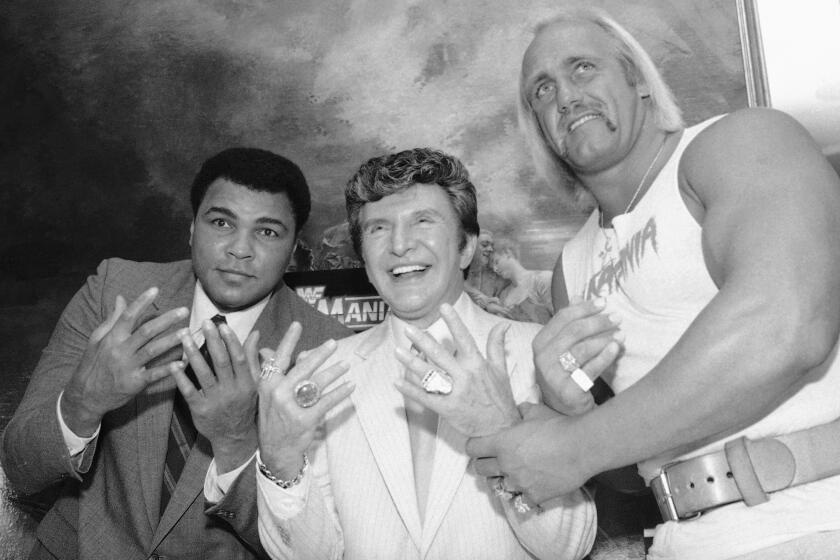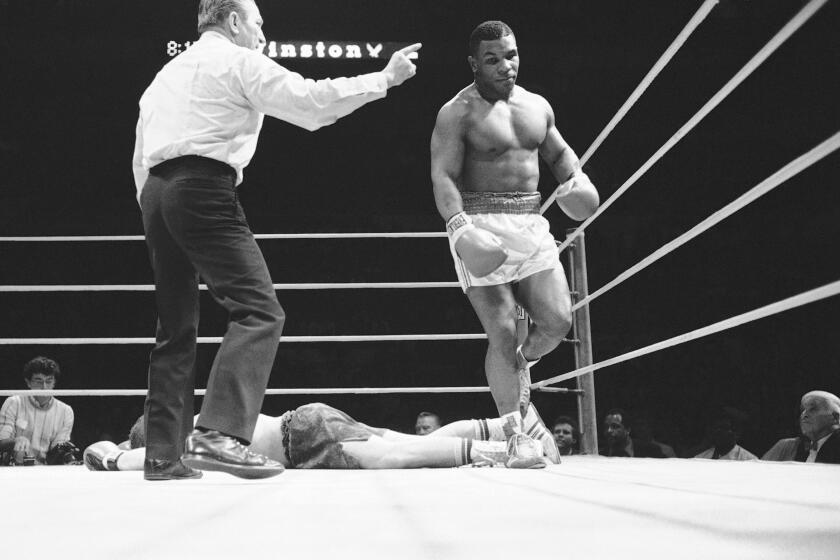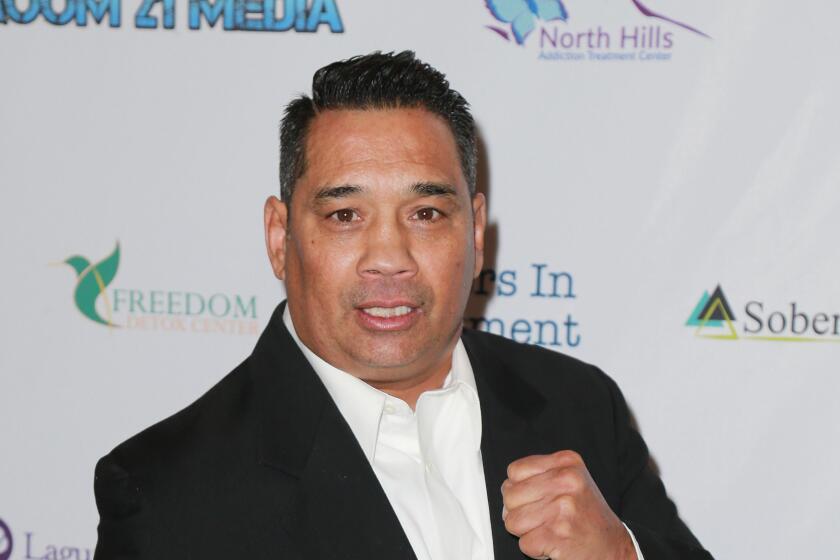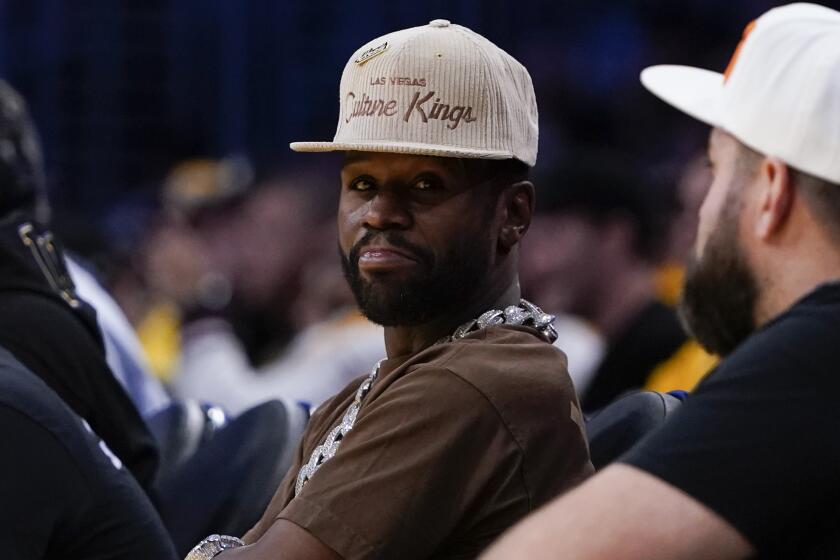Dominick Cruz used a cerebral approach to recapture his UFC belt
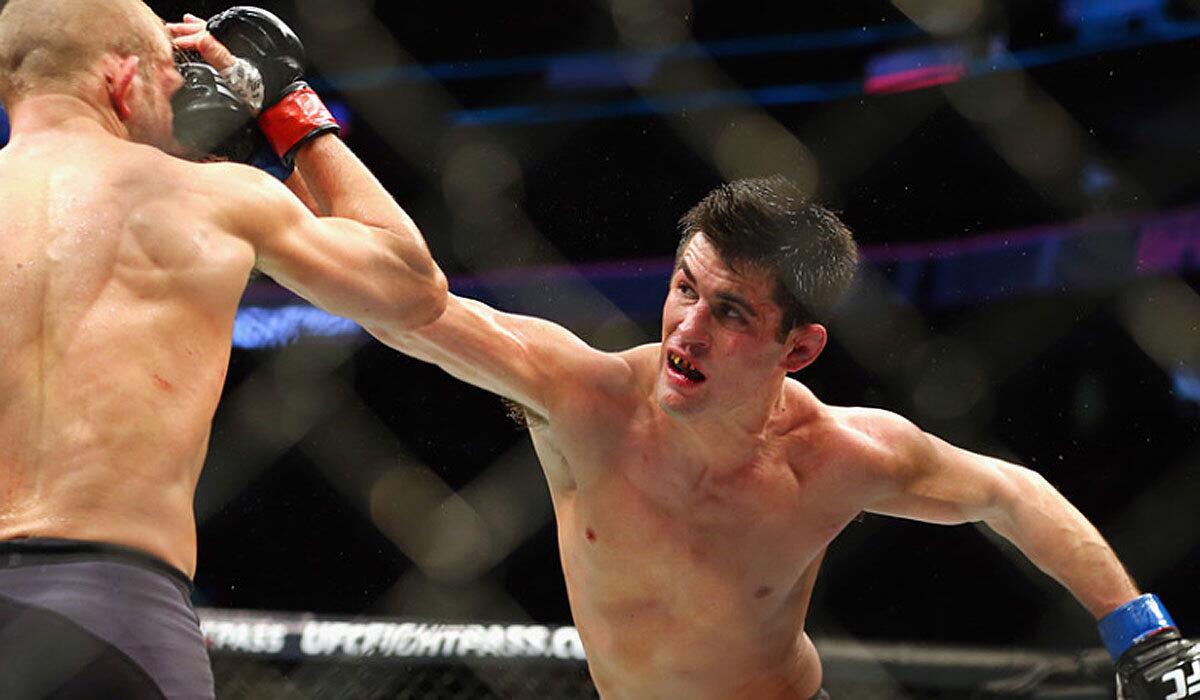
Dominick Cruz had plenty of time to think during a string of injuries that restricted him to just two fights in the past four years and eight months.
For an intellectual fighter who’d already proven himself as an Ultimate Fighting Championship belt-holder, the practice of enhancing his calculating style has allowed him to win back his bantamweight title.
San Diego’s Cruz (21-1) systematically broke down former champion T.J. Dillashaw en route to a unanimous-decision victory in January, and on Saturday’s UFC 199 at the Forum, Cruz will settle his trilogy with his bitter rival Urijah Faber (33-8) of Sacramento.
“Each fight is different, each fight changes according to matchup. Everyone has their own skill set that you have to change your game around,” Cruz, 31, said. “With Dillashaw, I fought him differently than I’ll fight Faber. Different weapons can be used. A different mind-set can be used.
“Faber backs up a lot, he conserves energy, doesn’t come forward very often, And when he does, it’s with one big shot. Big explosions. Dillashaw throws long-lasting combinations ending with a kick. He moves forward the entire fight. So the fight has changed tenfold. And that changes the weapons you have to use.”
Cruz’s only loss came to Faber more than nine years ago in a World Extreme Cagefighting featherweight title fight. Faber won by first-round submission (guillotine choke).
That spawned Cruz’s still-running 12-fight unbeaten streak that included his 2011 unanimous-decision triumph over Faber for the UFC bantamweight belt and another unanimous decision later that year over the current flyweight champion, Demetrious Johnson.
Cruz, well-respected for his conditioning, conquered questions over how he could recover from the three knee injuries and a groin tear that caused him to miss three years after the Johnson triumph and another 15-month layoff before beating Dillashaw.
“I had already challenged myself once and passed with flying colors, so now I had a new confidence about me, knowing I could believe in myself and do this,” Cruz said of recovering from knee ligament reconstruction. “I was right [before] in saying ring rust doesn’t have to exist, and that gave me great confidence to step up and fight T.J. … My body now is better after two [healthy] camps in a row.”
I know what you’re good at and I don’t need to be better than you at any of that. I’m just going to trick you.
— Dominick Cruz
An astute study of mixed martial arts fighting (he’s a Fox analyst and recently was hailed by a UFC 200 documentary producer as the most knowledgeable person consulted to expertly break down the top 100 MMA fighters in history) Cruz has watched his peers keenly.
“Every fighter’s biggest problem is their ego, and I refuse to let my ego get in front of me,” Cruz said. “It’s something I watch. I say it for what it is. Most fighters don’t. They speak according to their egos, 95% of them. Very few will ever state what the person they’re fighting is good at. They’ll always state what they’re better at.
“I take the opposite approach. I know what you’re good at and I don’t need to be better than you at any of that. I’m just going to trick you.”
Does he pride himself as the smartest fighter in his division?
“I outsmart them, but [whether I’m the smartest fighter] is not a fact that can be proved,” Cruz said. “Maybe my record proves it to an extent, but I look at myself more as a tactician, look at it as war: The best commanding chiefs and admirals can take 50 guys and beat armies of 1,000. Why is that? It’s been done throughout history.
“It was because they didn’t take them head-on like everyone else. There’s a form of war everybody who’s been outnumbered had to take: an opposite route, different tactics. That’s how I fight. There’s always an opposite way, a different tactic to throw off the opposite force and they’ll never give credit to the smaller or – who they think is – the weaker man.”
While his disdain for Faber is an interesting wrinkle worth watching Saturday, Cruz is positioned to put on a fighting display that will build the public’s appreciation for the art of the sport.
“You can look at all my fights and while people will say, ‘He looks better, he doesn’t look worse,’ what they’re not reading is that I change every fight according to the person I’m facing,” Cruz said.
“The credit I’ll never get is that I adapt to the other fighter’s style. I don’t necessarily have to fight them a certain way. I just take away their strengths.”
Get our high school sports newsletter
Prep Rally is devoted to the SoCal high school sports experience, bringing you scores, stories and a behind-the-scenes look at what makes prep sports so popular.
You may occasionally receive promotional content from the Los Angeles Times.

